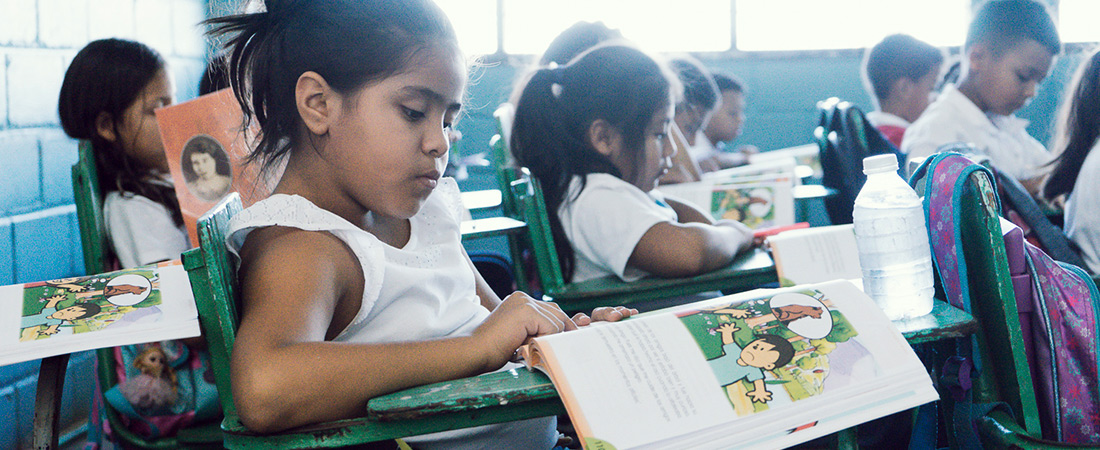Readers Today, Leaders Tomorrow

Jorge Fernández and his son have a routine during their daily drive to school in Comayagüela, Honduras. While they sit in traffic, Fernández retells his son the bedtime stories they read the evening before.
The storytelling transforms every trip to school into a new adventure. But for Fernández, it’s more than just a way to pass the time. It’s also a deliberate attempt to impart a love of reading to his son.
“It’s important for me to inspire him through stories,” says Fernández. “Children that read have a better future and are able to reach a universe of opportunities when they grow up.”
A new project, De Lectores a Líderes (also known as the Honduras Reading Activity), is working to inspire this love of reading in communities across Honduras. The five-year, USAID-funded project seeks to improve reading instruction in elementary schools and to foster interest in reading among parents and caregivers.
De Lectores a Líderes comes at a critical time. Reading scores in Honduras are very low—the result of poor instruction, few classroom resources, and a pervasive climate of violence. Low literacy levels are also identified as one of the root causes of poverty in the country.
“There have been many efforts in Honduras to raise the literacy performance in the past years, but these efforts have not been enough,” says EDC’s Daysi Coello, De Lectores a Líderes’ standards and curriculum advisor. “Six out of 10 children in Honduras lack basic reading skills. This creates a problem for their future and their dreams.”
However, to successfully improve children’s literacy and education in the long term, Honduras must also create a broader culture of reading. So, while De Lectores a Líderes primarily focuses on improving school-based instruction, it is also working with parents and caregivers to help them see the value in everyday activities that build literacy, such as reading bedtime stories or using local libraries.
An added benefit of these activities? They help strengthen families and communities, too.
“The lack of authority figures within the family make young people more vulnerable to school-based and country-wide violence,” says Sergio Ramirez, chief of party for De Lectores a Líderes. “This project is trying to improve this relationship outside school, especially focusing on fathers and male caregivers, so they become an active presence in the education of their children.”
Educators across Honduras are looking forward to participating in this effort. Martha Chavez, a schoolteacher in La Paz, says that improving literacy is nothing short of essential for the future of her country.
“The importance of our children learning to read in the classroom is that it will prepare them for life—and to become citizens of tomorrow,” she says.